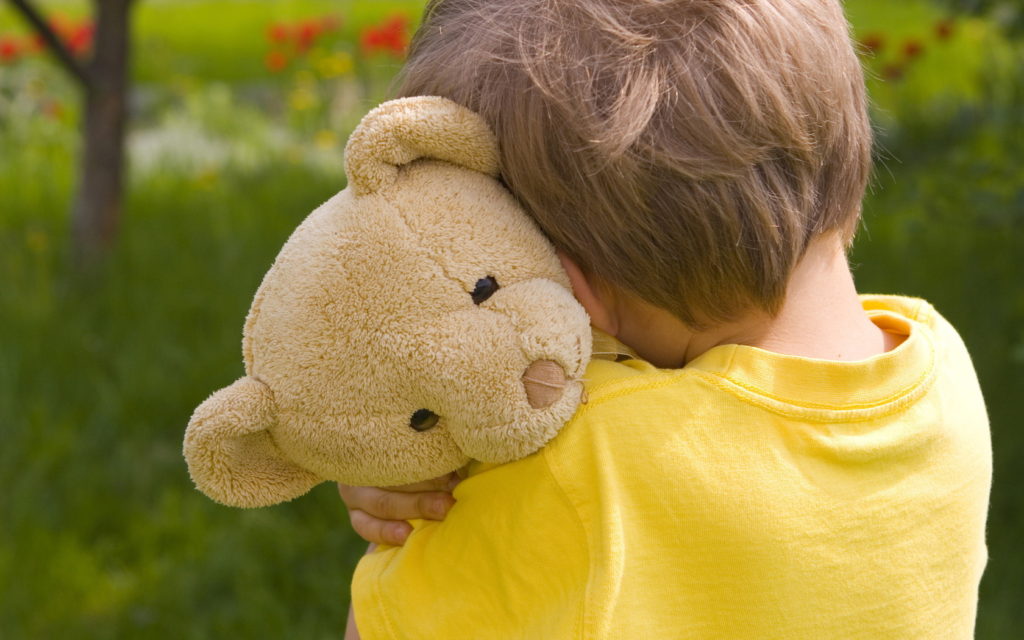Addiction, Trauma and Three Rules – Children of Addicted Parents. “Children of addicted parents are the highest risk group of children to become alcohol and drug users due to both genetic and family environmental factors.” – NACOA We spend so much time, energy and resources, trying to help the addicted person. But as a former child of an alcoholic, I wonder, what are we doing for their children? Does anyone understand the pain they’re in? Children, who grow up in families with addiction, experience trauma. When we think of trauma, physical use comes to mind. Physical use is traumatic, but emotional and psychological trauma is just as devastating. Some say more. With physical use, you can see the bruises. Because they’re apparent, the child is more likely to get the help they need. Emotional and psychological scars often go unidentified and are carried, for life. Theses scars will affect every relationship going forward. They will affect the child’s self-worth, leaving them feeling inferior, anxious and less than. Depression, substance use, unhealthy relationships and behaviours, or under/overachieving, can be the result. As a little girl, I didn’t know words like alcoholic, or addiction. I didn’t understand I was being ‘trained’ not to confront the unhealthy behaviors in our home, but rather, to make excuses for them. I didn’t know my father was an alcoholic. It took me quite awhile to put it together. The drink in hand, the drooping head, I thought he was sleepy. By the time I figured it out, the damage, was done. Growing up in an alcoholic family, I learned early not to rock the boat. I held my breath and walked on eggshells. I felt responsible for my Father’s drinking and my Mother’s sadness. As a child, I carried a lump in me. It was hot and sour. It shifted between my throat and stomach. I suffered from night terrors. My dreams made horror movies – look like child’s play. Because my parents were so caught up in the drama playing out in their relationship, they never noticed their little girl was suffering. The lump made it hard to eat. I used to think if I wasn’t careful; it would fly out and spew all the nasty stuff in me – onto you. I was horrified this might happen. I worked hard to contain my emotions. My needs were minimized. The message was loud and clear. I was not important. The alcoholic in our home got all the attention. Life revolved around meeting the addicted person’s needs. Rules were established but never spoken. Rule 1 – Don’t talk! As a child, the world was filled with mystery. I could study a bug for hours. Life was grand… outside our home. Inside, life was not grand. It was tense and scary. If I asked questions, I upset the alcoholic. Then everyone got mad at me. When he was upset, so were we. When a child can’t communicate, they internalize. I tried to make sense of the things no one was talking about. What made sense to me – the troubles in my home, were my fault. I didn’t know how or why. I just knew they were. I felt overly responsible, for everyone I met. I grew up without a voice. I couldn’t open up to people. I was lonely and needy. Rule 2 – Don’t Trust! Children learn by watching their parents. When the messages aren’t congruent, it’s confusing. There were times my mother’s eyes were puffy from crying. When I asked her what was wrong, she said, ‘nothing’. Her answer didn’t match up with what I was seeing. I felt bad – looking back I know now, that bad, was actually shame. Promises were made that were never kept. The underlying message was – Don’t ask questions. Do as I say, not as I do. I grew up feeling angry, suspicious and distrustful. Rule 3 – Don’t feel! I never learned about emotions as a little girl. I certainly had them. However I was reprimanded for acting on them – feelings that aren’t shared, come out as behaviours. In our home it wasn’t okay to cry or be upset. Nor was it okay to be too excited. We stayed in the middle. We survived by flat-lining, emotionally. Feelings were dangerous and messy. I never accepted my feelings, I judged them. They were either good, or bad. Good was okay. Bad was not. No one ever told me feelings are neither good nor bad, but simply comfortable and uncomfortable. I was so relieved to learn this! I’d spent most of my life trying to shut down the ‘bad’ ones. I grew up numbed out. This is dangerous for the child of an addict. You can imagine what happened, once I took my first drink. Nirvana! I’d found the solution to all my problems. No more lump in my throat or stomach. My anxiety disappeared. My skin fit. Hallelujah! Trouble was ‘my solution,’ almost killed me. Children, who can’t talk, trust or feel, do not develop self-worth. They’re unable to communicate and ask for what they need. They look to people, places and things, for validation. They tend to exhibit risky behaviors, often using alcohol and drugs at an early age. With no healthy life skills to draw upon, their relationships are unhealthy, and compulsive. In other words, when children grow up in unhealthy family systems, their risk of repeating the cycle, is high. If you or someone you know needs help, please call this confidential support line for assistance. 844-470-0410.
Addiction, Trauma And Three Rules – Children Of Addicted Parents

Lorelie Rozzano is a guest blogger for Vertava Health.

